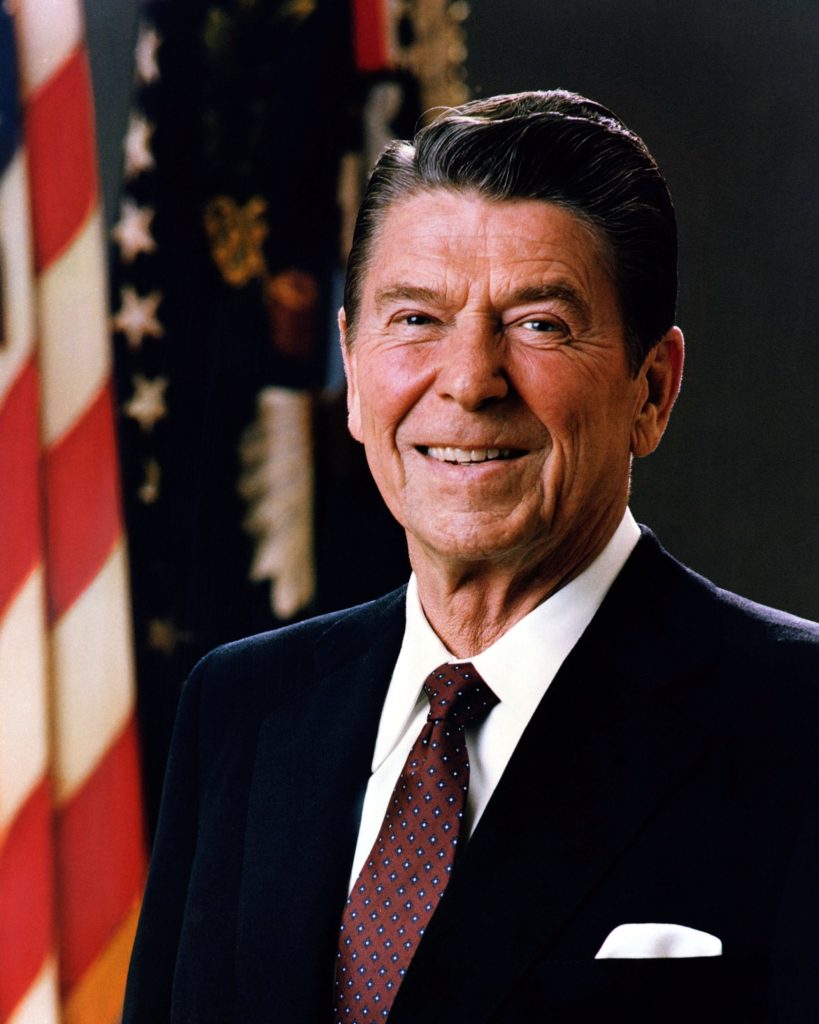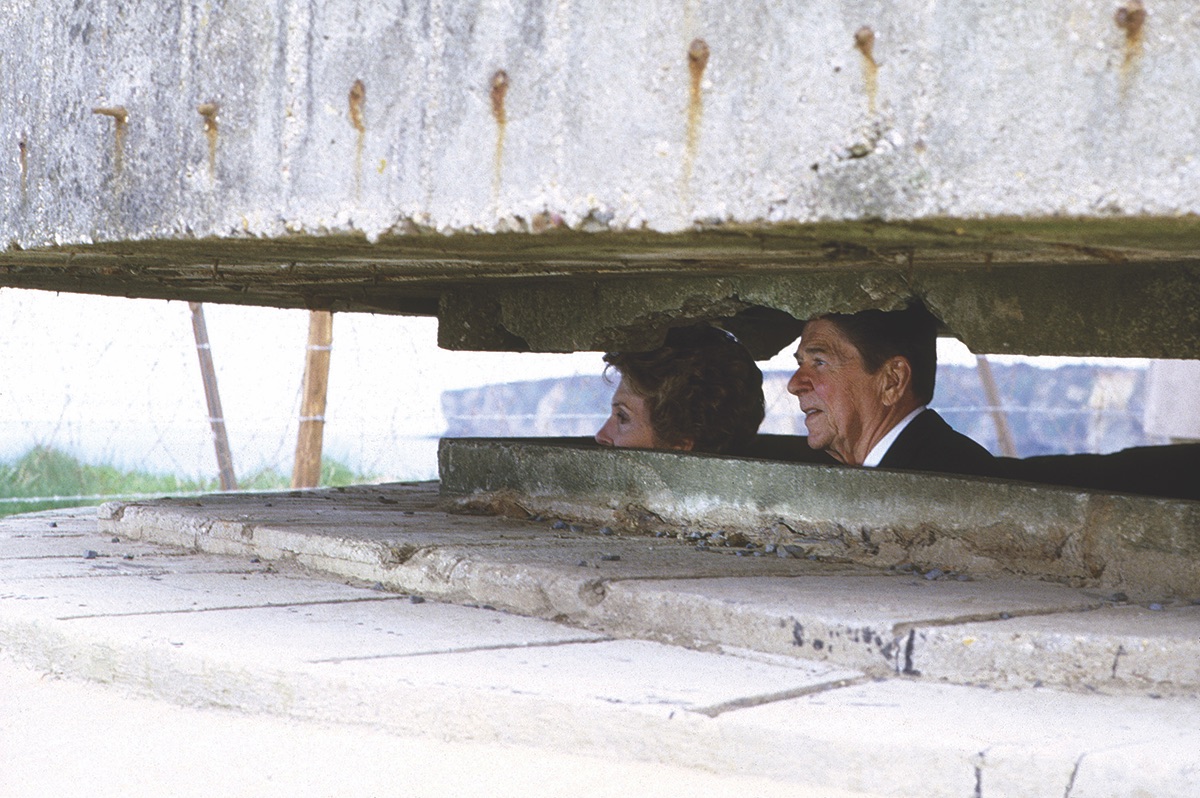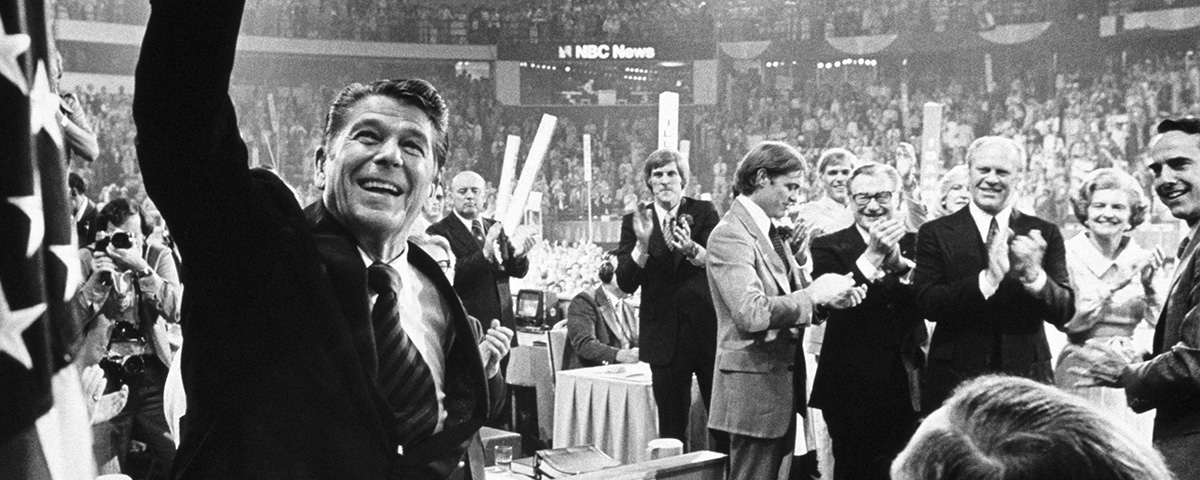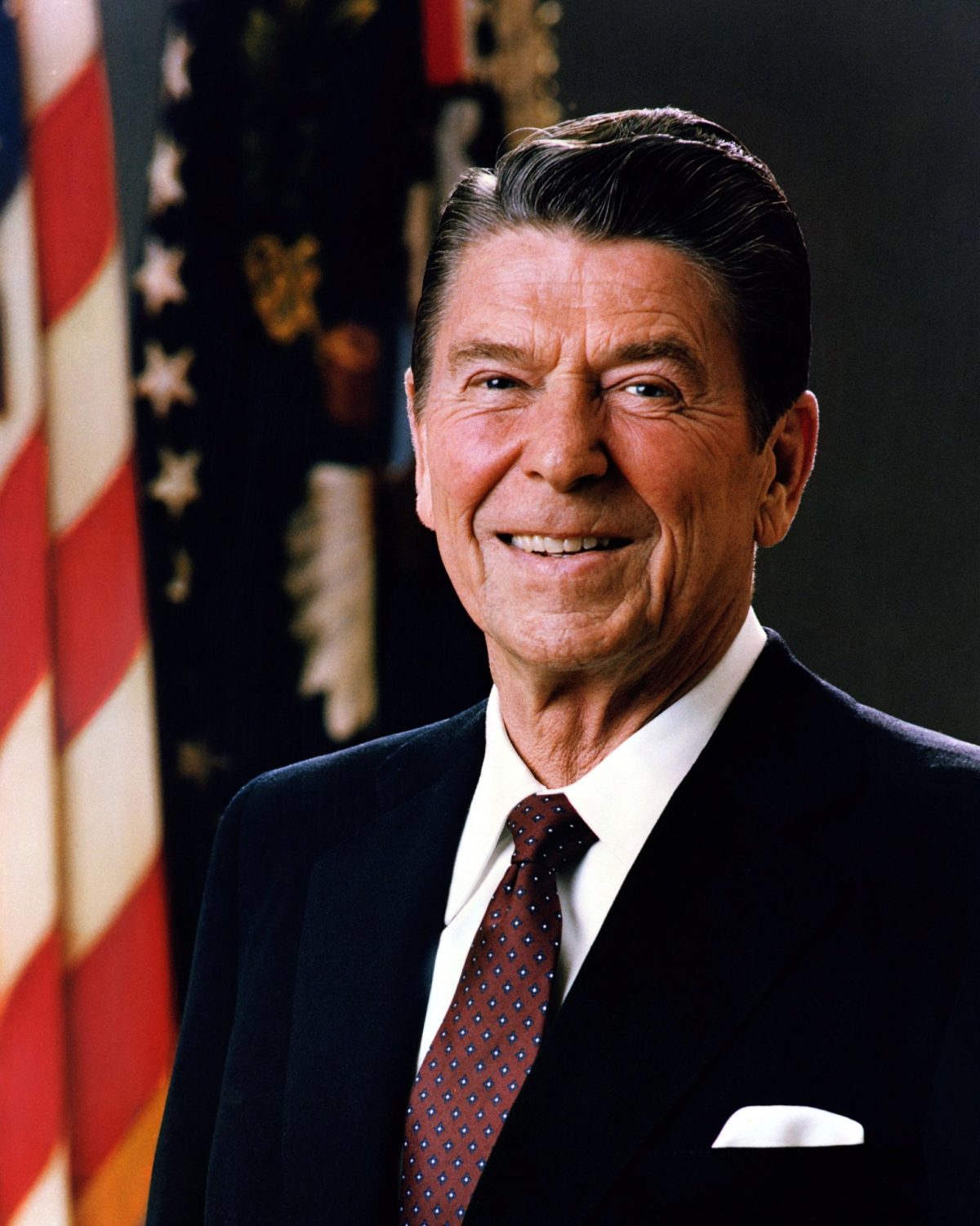A B-movie star in the Golden Age of Hollywood who rose to become the 40th president of the United States, Ronald Reagan embodied many of the promises of 20th-century America, as well as its conflicts and contradictions. Often credited with ending the Cold War with the Soviet Union, he helped remake the Republican Party in the post-Nixon era and pushed tax cuts as economic stimulus, but was also criticized by liberals for worsening income inequality, ignoring the burgeoning AIDS epidemic, and greatly expanding the war on drugs.
Facts & Information

Born
February 6, 1911, in Tampico, Illinois
Died
June 5, 2004, of pneumonia
Presidential term
January 20, 1981 — January 20, 1989
Nicknames
- The Gipper
- The Great Communicator
Places named for ronald reagan
- In 1998, Washington National Airport, outside the capital, was renamed for the former president. It is now Ronald Reagan Washington National Airport.
- The Ronald Reagan Presidential Foundation & Institute—also known as the Reagan Library—opened in 1991 in California’s Simi Valley.
- The USS Ronald Reagan is a Nimitz-class, nuclear-powered aircraft carrier.
quotes
Often known as “The Great Communicator” for his charm and ability to engage listeners, Reagan was, unsurprisingly, quite quotable. Here are a few of his most lasting phrases:
The nine most terrifying words in the English language are: I’m from the Government, and I’m here to help.
At a news conference, August 12, 1986
There is one sign the Soviets can make that would be unmistakable, that would advance dramatically the cause of freedom and peace. General Secretary Gorbachev, if you seek peace, if you seek prosperity for the Soviet Union and Eastern Europe, if you seek liberalization: Come here to this gate! Mr. Gorbachev, open this gate! Mr. Gorbachev, tear down this wall!
Remarks on East-West Relations at the Brandenburg Gate in West Berlin, June 12, 1987
More Stories About Ronald Reagan
Biography
Reagan’s Early Life, Military Service, and Hollywood Career
Ronald Reagan was born on February 6, 1911, in Tampico, Illinois, the second son of John Edward and Nelle Wilson Reagan. In 1928, he attended Eureka College on a partial athletic scholarship (he played football) while working a part-time job washing dishes. After graduating, Reagan received a job as a sports announcer for a radio station in Davenport, Iowa.
In 1937, completed a series of study-at-home extension courses and joined the Army Enlisted Reserve, according to the Reagan Library. In 1942, he was ordered to active duty, serving in a series of domestic roles (because of his poor eyesight) over the next three years, including with the 1st Motion Picture Unit. His commission was automatically terminated in 1953; at the time, he held the rank of captain.
During the same period, Reagan became a movie star. He joined Warner Brothers Studios in 1937 under a seven-year contract and appeared in more than 50 films, many of them B-movies. One of his notable performances was as football player George Gipp, in Knute Rockne: All American, whose most famous line—”Win one for the Gipper”—resurfaced as a slogan in his political career. He served as Screen Actors Guild president from 1947 to 1952, and again in 1959–60.
Family and Children
In January 1940, Reagan married Hollywood starlet Jane Wyman. The two had two children: their daughter, Maureen, in 1941, and adopted son, Michael, in 1945. Another infant born to them died in June 1947. The couple divorced in 1949.
In 1952, Reagan married actress Nancy Davis; together, they had two children, daughter Patti Davis and son Ron Reagan Jr.
Political Career
As he grew older and more interested in politics, Reagan became increasingly conservative. In 1966, Regan ran as the Republican candidate for governor of California, and won the election. He was re-elected for a second term in 1970.
In 1976, Reagan challenged President Gerald Ford for the Republican presidential nomination but lost. Four years later, he won the nomination—and the presidency, defeating incumbent Jimmy Carter. Reagan was 69 years old when he became president, the oldest man elected to the office at that point. (Donald Trump, who was 70 on Inauguration Day, currently holds the record.)
During his first term, Reagan was kept busy with the Cold War, and launched the Strategic Defense Initiative—nicknamed Star Wars—to develop space-based weapons to protect the United States against Soviet attacks. He also took a strong stance against labor unions, expanded the war on drugs, and ordered the invasion of Granada.
In 1981, Reagan survived an assassination attempt by John Hinckley Jr., and some historians believe this represented a change in Reagan’s direction as president, leading him to push for treaties with the Soviet Union. Reagan ran for re-election in 1984 and beat Walter Mondale. He left office in 1989, succeeded by his vice president, George H.W. Bush.
Post-Presidency and Death
Reagan had been dogged by questions about his age and possible senility when he was office, but it wasn’t until 1994 that he announced he had been diagnosed with Alzheimer’s Disease. Perhaps because of this, his years out of office were less active and involved than many had expected. Ronald Reagan died on June 5, 2004, at the age of 93. The cause was pneumonia.



